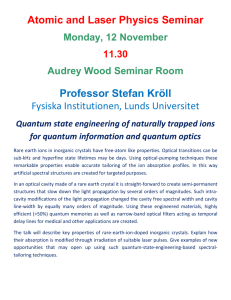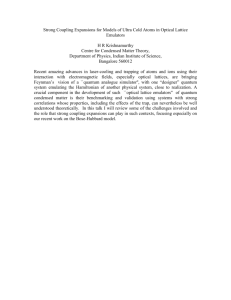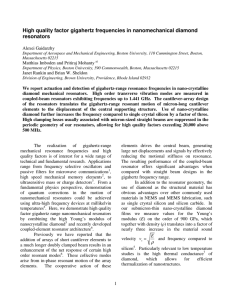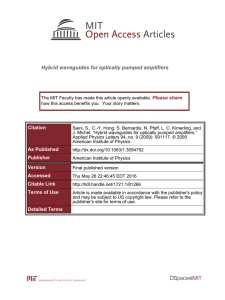Tunable Optical Resonators with Embedded Diamond Defect Centres for Quantum Technologies
advertisement
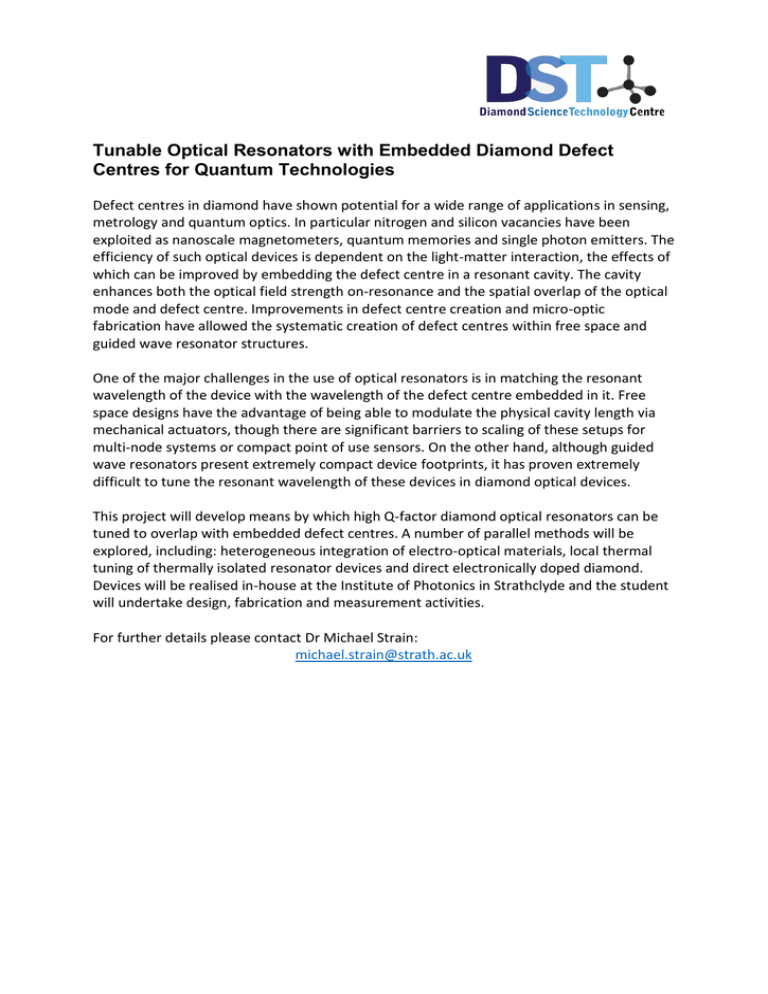
Tunable Optical Resonators with Embedded Diamond Defect Centres for Quantum Technologies Defect centres in diamond have shown potential for a wide range of applications in sensing, metrology and quantum optics. In particular nitrogen and silicon vacancies have been exploited as nanoscale magnetometers, quantum memories and single photon emitters. The efficiency of such optical devices is dependent on the light-matter interaction, the effects of which can be improved by embedding the defect centre in a resonant cavity. The cavity enhances both the optical field strength on-resonance and the spatial overlap of the optical mode and defect centre. Improvements in defect centre creation and micro-optic fabrication have allowed the systematic creation of defect centres within free space and guided wave resonator structures. One of the major challenges in the use of optical resonators is in matching the resonant wavelength of the device with the wavelength of the defect centre embedded in it. Free space designs have the advantage of being able to modulate the physical cavity length via mechanical actuators, though there are significant barriers to scaling of these setups for multi-node systems or compact point of use sensors. On the other hand, although guided wave resonators present extremely compact device footprints, it has proven extremely difficult to tune the resonant wavelength of these devices in diamond optical devices. This project will develop means by which high Q-factor diamond optical resonators can be tuned to overlap with embedded defect centres. A number of parallel methods will be explored, including: heterogeneous integration of electro-optical materials, local thermal tuning of thermally isolated resonator devices and direct electronically doped diamond. Devices will be realised in-house at the Institute of Photonics in Strathclyde and the student will undertake design, fabrication and measurement activities. For further details please contact Dr Michael Strain: michael.strain@strath.ac.uk
